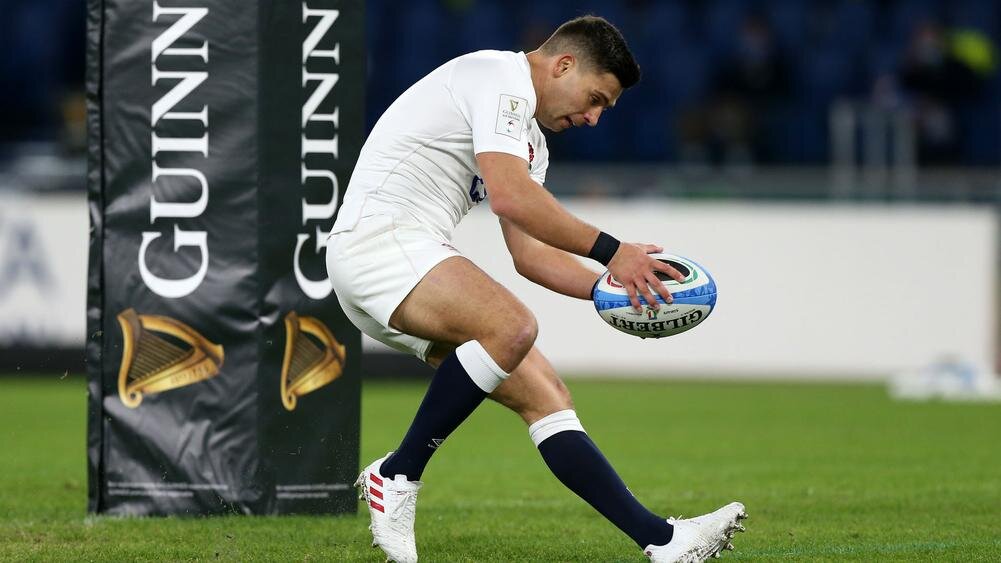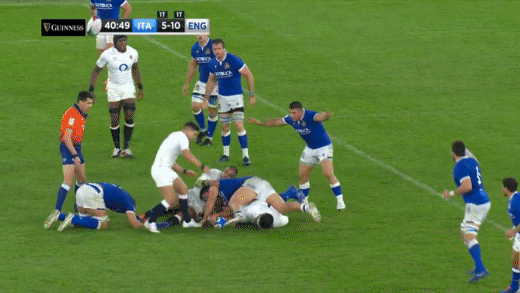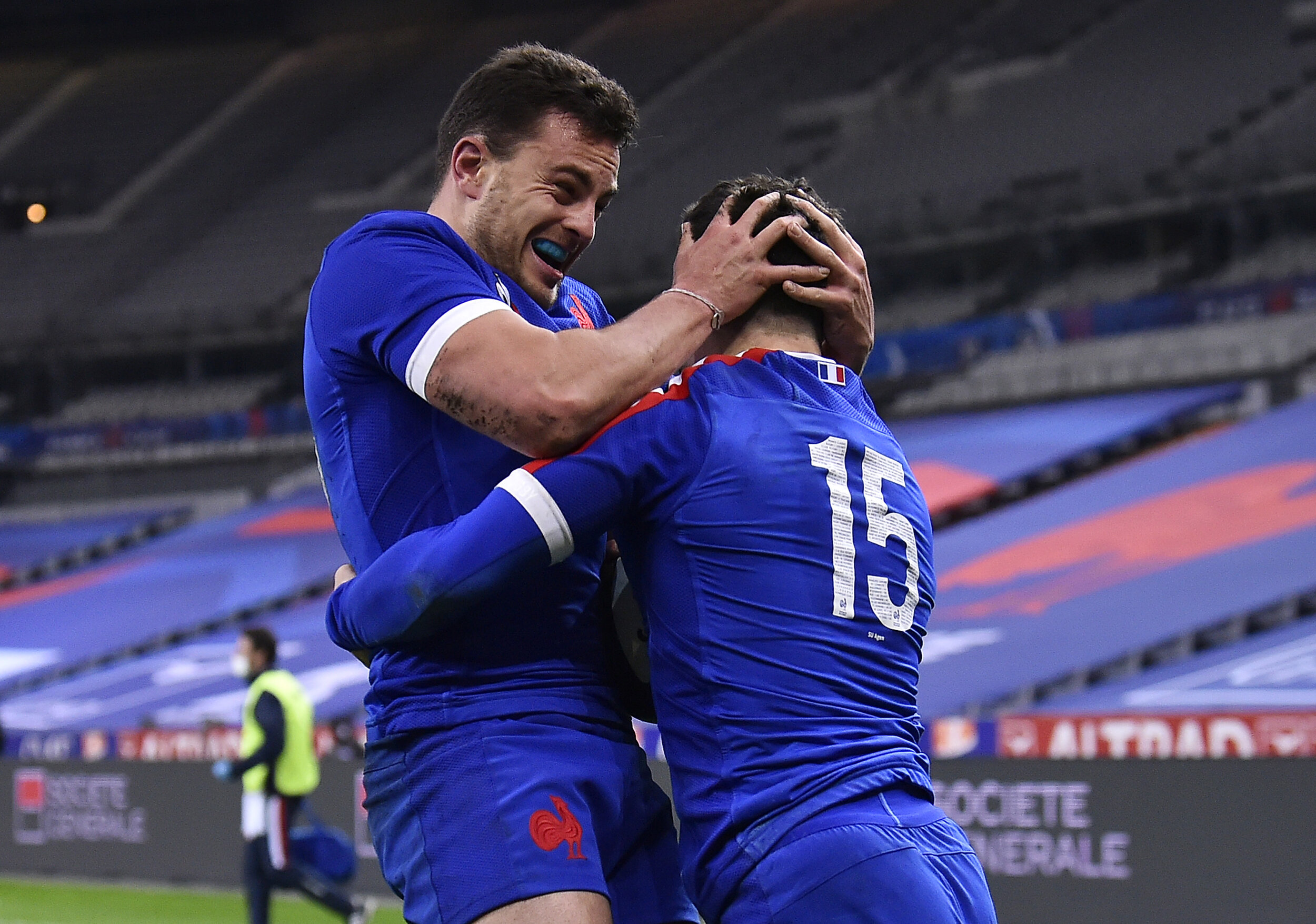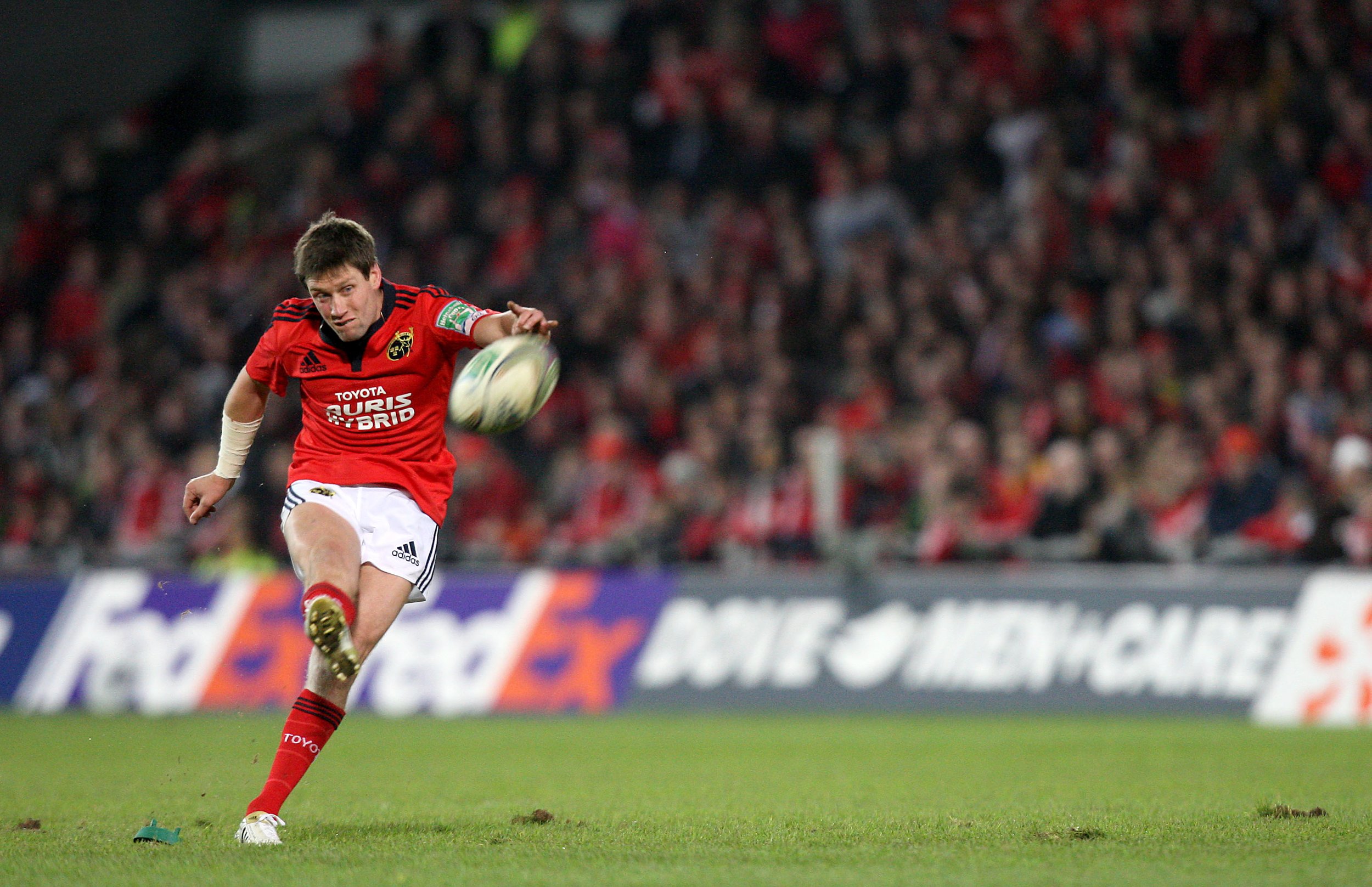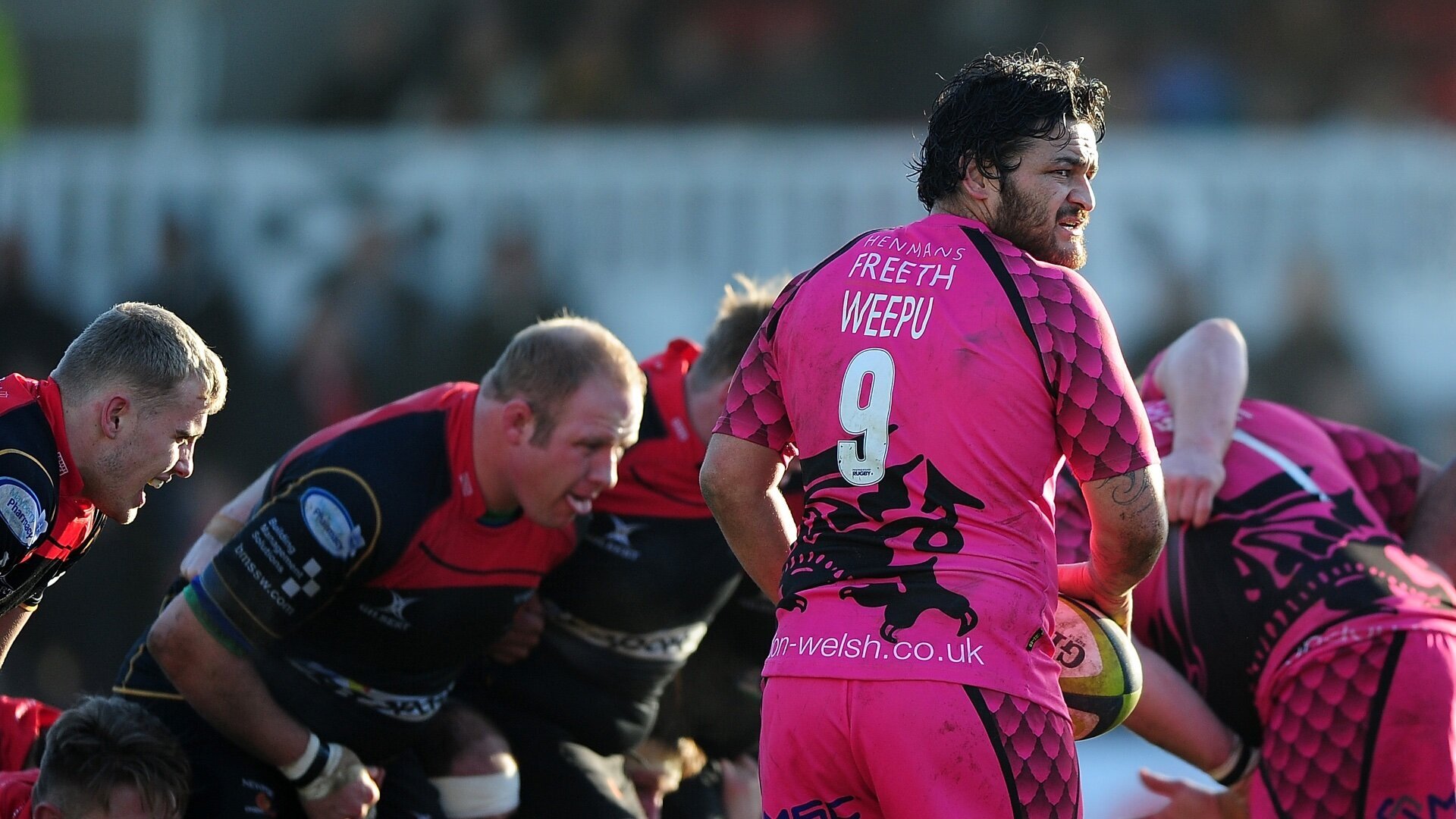Six Nations: Five Talking Points from Round 5
Ben Youngs, on his 100th appearance for England, dots down their first try in a 34-5 win over Italy
Credit: Getty Images
And so it came to pass that the 2020 Six Nations finally finished on Halloween Night - a mere 237 days since in started back on February 1.
In between, it has been one of the strangest and most concerning times in modern history as the COVID-19 pandemic gripped the world.
Just to have Super Saturday in the climax of the tournament back on our screens was wonderful enough, a welcome distraction in these dark days.
Ultimately, the results didn’t matter as just watching top class rugby was enough for this fan.
On the field, Scotland ground out an impressive 14-10 win away to Wales while England defeated Italy 34-5 to put the pressure on Ireland in the evening game.
An exciting game saw France run in four tries in a 34-27 win over the men in green to hand England the title and bring an end to the strangest Six Nations there will ever be.
We wrap up the talking points from the final round of tournament ahead of the Autumn Nations Cup.
England victorious with Ben Youngs a modern great
It wasn’t pretty but England’s overriding emotion would have been relief as Tom Curry’s 67th minute try sealed the bonus point win and put them in the driving seat for the title.
Things were a bit wobbly for the Red Roses as they entered the sheds at half time just 10-5 up with Italy butchering some great opportunities and only had Jake Polledri’s try to show for their efforts.
England’s most reliable performer in recent years on the occasion of his 100th cap, Ben Youngs, scored just after the break with a gorgeous show and go.
He sold the covering Matteo Minozzi a merry dance with a cheeky step to bag his second of the game on the way to a 34-5 win.
Youngs’ game management is exemplary and he brings out the best of the guys around him when he plays.
The centre partnership of Henry Slade and Jonathan Joseph showed potential going forward into the Autumn Nations Cup while Tom Curry got through his usual fair share of work.
For Italy, they enjoyed 46% off the ball but lacked a real cutting thrust to their attacking play.
Winger Mattia Bellini and centre Luca Morisi made some significant carries as they worked to get around the white wall and Minozzi is always a threat from fullback.
20-year-old Paolo Garbisi looks a talent at fly-half but for all his endeavour and work rate, he couldn’t unlock an England defence that made many dominant tackles and forced 19 turnovers.
Due to the cancellation of the game against Barbarians, this was the first England match in seven months and rustiness was felt.
A dreadful first half against France back in February, an opening day 24-17 defeat, was the difference maker for the Grand Slam.
However, given the batshit nature of 2020, just seeing the Six Nations back was good enough and debutant Tom Dunn’s post-match reaction was the icing on the cake for The Flanker.
Wales poor as Warren Gatland hangover felt
Wales' defeat to Scotland on Saturday came almost a year to the day since they narrowly lost to South Africa 19-16 in the World Cup semi-finals.
It left the 2019 Grand Slam winners fifth in the final table, only propped up by recipients of the wooden spoon Italy.
What has happened to a team that looked so imperious just 12 months before?
New coach Wayne Pivac wants to bring the running style his Scarlets team were revered for but it appears to be clashing with his predecessor Warren Gatland’s safety first gameplan.
Granted, the conditions were poor as Wales lost 14-10 to a gritty Scotland on Saturday but Pivac has now overseen five successive defeats as his ideas are yet to bear fruit.
The men in red had just 43% of the ball and 40% of the territory as the Scots managed the conditions better and played in the right areas of the field.
In many ways, they looked as though they lacked the physical power to match the Scottish pack - as if middleweight king Gennady Golovkin had stepped up to fight Anthony Joshua.
At the breakdown they struggled to gain the upper hand against the jackling Jamie Ritchie and Hamish Watson, conceding 11 of their staggering 16 penalties at the ruck.
It must be noted Pivac was without the services of Josh Navidi and Justin Tipuric, two of his best breakdown operators, for the game but the above will be alarming to him.
The Welsh backline was starved off ball with the ball often going to the skies to exploit the windy conditions.
Josh Adams made the most metres for his team with a measly 37 run across seven carries as the game became very stop start with unforced errors taking hold.
In a close arm wrestle of a match, the home crowd can often will their side to victory.
90,000 passionate Welsh fans at the Millenium Stadium could have made the difference but this should not excuse a desperately poor performance.
France lament missed opportunity- but positive signs ahead
Although Les Blues missed out on their first Six Nations championship since 2010, there are much more positive signs than there were a year ago after the chastening World Cup quarter-final defeat to Wales.
It was a classic performance from Fabien Galthie’s men during the 35-27 win, typical of the champagne rugby they have delivered throughout the tournament.
Despite living off scraps in an Ireland-dominated first half, they led through a slick Antoine Dupont try that was made by the jinking feet of versatile back Gael Fickou.
A bizarre penalty try followed when Irish flanker Caelan Doris was sin binned for a cynical late tackle on Francois Cros as he attempted to gather his kick through.
The second half’s efforts were even better and Romain Ntamack’s score in the 44th minute was a doozy.
The French look threatening every time they have broken field and as soon as Anthony Bouthier offloaded the ball after receiving a high bomb, you just knew France would have a chance.
The only thing better than Gael Fickou’s delicate grubber was the outrageous flick inside by Dupont, despite being deposited into touch, giving Ntamack an easy run in.
The young fly-half then turned provider on the 70 minute mark with a gorgeous chip, which he collected without breaking stride, and fed the giant Virimi Vakatawa for the bonus point score.
There was so much to love about the performance that it could be forgotten the French had ultimately blown a Grand Slam.
It sounds brutal, but as Brian Moore said at the start of the game, France need to keep their discipline if they are to be taken as a serious threat before their home World Cup in 2023.
The spectacular blow out against England and a rare win in Wales were massive steps forward, but Mohamed Haouas' first-half red card against Scotland in March cost them not just the game but ultimately the Grand Slam.
Channelling the immense physicality and passion of this squad remain a huge task for Galthie and his coaching staff.
Still, they will be considered favourites for the upcoming Autumn Nations Cup as well as the 2021 Six Nations and as long as Galthie, Shaun Edwards et al continue to pick the best players and develop this winning, scintillating style.
If the momentum is maintained the long-awaited title is surely a case of if, not when.
Improvements needed for Farrell’s men
Ireland look on after conceding the opening try in Paris
Credit: Reuters
Ireland fans would have been so disappointed by the performance at the Stade de France.
All the possession and territory of the first half ultimately led to nothing and their mistakes were punished by a French team who were in no mood to lie down and give Ireland the championship like they did in 2014.
France’s first two tries were the epitome of Ireland’s problems, with the first the weaknesses in the defensive system.
All it needed was Anthony Bouthier to deliver a pass outside of Johnny Sexton, who was blitzing in the 13 channel, and suddenly Gael Fickou only had to beat covering tighthead Andrew Porter and second-row Tadhg Beirne.
He got past both with ease and Dupont had the game’s first score.
In fairness to Ireland, they recovered well and were 10-7 up until their other weakness reared its head - kicks in behind.
This time Vincent Rattez’s grubber was fumbled backwards by Jacob Stockdale, playing at fullback, which ultimately led to a penalty try and Caelan Doris’ yellow card and proved the turning point of the match.
It’s an issue which has plagued Ireland for a while. They were picked apart by England in the 2019 and 2020 tournaments with grubbers into the backfield and it is evidently something Andy Farrell has not been able to eradicate out of them.
Perhaps the return of Jordan Lamour will help but even he was still involved in that defeat against Twickenham in February.
Once falling further behind to France’s fine third score, it was always going to be an uphill battle for the Irish.
The men in green made little attacking gains outside of brilliant individual scores from Robbie Henshaw and Jacob Stockdale, ultimately undone late on by Ntamack’s chip over the top.
Again, it was a kick through that exposed their defensive frailties despite having 60% possession and 64% territory all game.
There have certainly been positives for Farrell's side during this tournament, but they have not moved on under a coach who was firmly ingrained in the Joe Schmidt system for years.
Continuity is not necessarily a bad thing - just ask Ian Foster and the All Blacks -but perhaps Ireland needed a full break from the past.
Farrell will get the chance to right some wrongs in the Autumn Nations Cup with games against Wales, England and Georgia, but his side needs to start showing improvement and fast.
Fortunes reverse in quick time for Scotland
Scotland celebrate during their 14-10 win over Wales in the Six Nations
Credit: AFP
Scotland in many ways will go as the forgotten men of this Six Nations campaign with so many storylines to be found elsewhere.
However, we at The Flanker think their tumultuous journey through this year’s tournament deserves a word.
It was a campaign that started off pretty much in crisis mode as talisman Finn Russell left camp in high dudgeon following an argument over a beer at a team meal.
Albeit less of a theft accusation and more of a “I’m fine - no really” argument.
Gregor Townsend’s ship looked in danger of fully capsizing ahead of their opener against Ireland, but the Scots managed to find some resolve in that game and finished with a creditable 19-12 defeat at the Aviva.
Now, we’ve seen these kinds of performances from Scotland before, but consistency was always their Achilles heel. The thing is, this time they kind of found that.
Hamish Watson (L) and Jamie Ritchie (R) have developed a brilliant back row partnership
Credit: Alex D’Addese/Fotosport
Yes, they followed that game with a home defeat to England in an absolute maelstrom at Murrayfield but again they went toe-to-toe with the much-fancied English.
Scotland looked for the largest part of the game as though they were capable of edging them out and retaining the Calcutta Cup again.
A workmanlike win over Italy followed, but it was in the fourth round of games against the flying French - who were in pursuit of a Grand Slam - that the Scots underlined that their resolve was not for naught.
A red card for the French did not help (see above) but Scotland had arguably been the better side up to that point and closed the game out very professionally - something we haven’t been able to say too often.
What is more, they followed up the months of uncertainty during Covid-19 with a thoroughly-deserved win in Wales.
With Finn Russell firmly back in the saddle, they managed to earn a winning record in the tournament and that is something few would have seen coming in February.
A 14-10 win is not exactly a blowout but what it represents is a new-found ability in the current Scotland team to close out those kinds of games, which they have struggled to do in years gone by.
Captain Stuart Hogg has clearly picked up a winning habit from his trophy-laden year at Exeter Chiefs as he has been crucial in picking the team up from the ashes of the Russell debacle and carrying them into the tournament from the front (that moment in Dublin aside).
Adam Hastings must be given due credit for his role in keeping the team ticking over with Russell out of the action while Scotland’s back row stocks continue to rise with Hamish Watson and Jamie Ritchie forming a deadly flanker partnership.
There have been so many false dawns for Scotland, though.
The challenge now for Gregor and his men is to carry that through the Autumn Nations Cup and into 2021 - if they can do that, the sun will be shining much more brightly on the men from the North.

